Kaiputra: The untold story of a discriminated and excluded community

The government term for the community that rears pigs in the open field in Bangladesh is Kawara. The public, in general, also uses the same word but Kawara, in Bangla, is used in a derogatory way implying the community that lives with pigs. Lately, the Kawara people have adopted the term "Kaiputra," a more respectable term to identify themselves.
If you are travelling through the southwestern districts, especially Satkhira, Jashore, Khulna, Kushtia, Faridpur, Gopalganj, Barishal and Narail, you are likely to see a herd of pigs grazing along the roadside or in a beel. Generally, a flock has 200 to 500 black pigs, almost similar to wild boar in looks. Pigs are considered unholy and therefore unwanted in a Muslim majority country.
However, the pork that comes from the southwestern districts of Bangladesh has high demand among non-Muslims and the big hotels, particularly in Dhaka. The Christians in Dhaka cannot think of celebrating their festivals without pork from the southwestern districts of the country. In fact, black pigs, fed and reared in the open field in these low-lying districts, are routinely slaughtered in Nagori in Kaliganj close to Dhaka and brought to shops in Farmgate. The meat is also supplied to hotels.
We have been following the herds of pigs in a few districts since 2016 for our research interest on the Kaiputra, one of the most miserable and impoverished people of Bangladesh. They leave their families in villages in Satkhira, Jashore and Khulna districts and live with the pigs throughout the year. A herd of 500 pigs require a dozen strong men who are known as rakhals. What I admire most about the rakhals is that they treat the pigs like their siblings. They have particular skills to communicate with the pigs, an intelligent animal.

The rakhals indeed feed the pigs, live with them day and night and talk to them. The pigs also listen to them and follow their instructions. The rakhals and pigs in the depth of our beels have an amazing life that we hardly notice. We normally see them when they come on the road to move from one place to another or feed along the roadside.
The rakhals and their origin
The Society for Environment and Human Development (SEHD) has thoroughly mapped the Kaiputra community and published a book, "Kaiputra: Pig Rearing Community" in 2019. SEHD found this community in 46 villages in Jashore, Satkhira and Khulna districts. In 41 of these villages, the Kaiputra community is active in their traditional business of pig rearing in the open. Kaiputras in five of the villages do not send their men as rakhals in the field. In addition to these 46 villages, there are another 29 villages in these three districts, where the Kaiputra communities have taken up fishing. They are no more interested in traditional pig rearing and in identifying themselves as Kaiputra.
The guesstimated Kaiputra population is 12,000. In 2018, the number of herds of pigs reported by the community members was 102 and the number of pigs, 16,296. Some members of the Kaiputra communities also raise pigs in their homes.
Although all Kaiputra people are followers of Hinduism, they are not considered to be within the four Varnas of the caste system and are therefore untouchables. There is no other community in the southwest of Bangladesh so isolated, ostracised, broken, impoverished and socially excluded.
On April 7 and 8, I visited a Kaiputra para in Dakshin Alipur (No. 2 Ward) in Alipur Union of Satkhira Sadar Upazila. The condition of 47 Kaiputra households—39 on the western side and 8 on the eastern side—of the Satkhira-Shyamnagar highway is worse than appalling. Many of the houses are jhupris. The community reported that the 47 families have been living there on khas land for many decades.
Around 50 men (rakhals) from this Kaiputra para go out in the field with their herds. Their monthly salary ranges between Tk 3,000 and Tk 9,000 plus a daily allowance for food.
The most appalling thing about the Kaiputra community of Dakshin Alipur is 25 of its female members, all widows and abandoned, beg in neighbouring areas. One of them is Kalyani Mondol (60 and above), who has been begging since her husband, a rakhal, died many years ago. She has a daughter, who has been married off. Kalyani lives in a jhupri, about 6 feet by 6 feet, made of nipa palm leaves, polythene and rusted tins. During rain, she has to sit up and stay awake. She is physically handicapped and walks with the help of a stick. What she gets in widow allowance is hardly enough. She cannot survive without begging.
"Because we beg and our men work with pigs, our neighbours look down on us," says Shefali Mondol (35), who also begs and sometimes works as a daily labourer. "In tea stalls and hotels in bazar areas, our cups and plates are separate. We are not socially equal to other humans."
The government reportedly has plans to expand the Satkhira-Shyamnagar Highway into four lanes and has been asking the Kaiputra community to vacate the land they inhabit. The Kaipiutra people are completely landless and have nowhere to go.
They, however, have a suggestion for their relocation. "We are landless and our houses are so flimsy that we consider ourselves homeless," says China Mondol, a mother of two rakhals. China occasionally begs for a living. "There is plenty of khas land on the western side of our current location. We are repeatedly appealing for pucca houses under Ashrayan scheme to resettle us there."
It is to be noted that in August the prime minister announced Satkhira Sadar Upazila free of landless and homeless people. The 47 Kaiputra families of Dakshin Alipur in Satkhira Sadar clearly show that the upazila is not free of the landless and homeless, if Kaiputra people are considered citizens of Bangladesh. These families will remain grateful to the prime minister if she resettles each of them on a piece of land.

Living the life of pig graziers in a fast-changing Bangladesh is really challenging. Maintaining a herd of around 500 pigs requires a large sum of money. The owners of the herds do not have access to bank loans. They take loans from moneylenders at a very high interest rate. They also take loans from NGOs, which are inadequate. There are also high risks of swine flu and other unknown diseases that kill pigs in masses.
In January 2022, an unknown disease killed many herds of pigs. Dilip Mondol, owner of a big herd of pigs in Vayana village in Jashore, helplessly watched all of his 700 animals die when an unknown disease struck. His net loss was Tk 50 lakh. His debt to different parties was Tk 30 lakh. He is completely broke now. He is not sure if and when he can come back to business. There are many others who witnessed their pigs' death after the attack of the unknown disease. Many do not report these diseases in fear of hostility from the locals.
The Kaiputra people want change and a respectful life. Bangladesh has indeed made significant progress in many sectors including health, education, economy, employment generation and fisheries. Many from the Kaiputra community have also changed their occupation. Those who have given up their pig grazer profession and moved to fishing feel they are doing better socially and economically. Many have also been changing their Kaiputra title, Mondol, to Tarafdar, Biswas, Sarkar, etc. Their children are getting admitted to schools in greater numbers. Yet, the Kaiputra like those in Dakshin Alipur are left far behind than any other community in the southwest, where they are concentrated.
As long as they keep taking their pigs for grazing in the open field, a practice they have inherited from their forefathers, they need support and protection from state and non-state parties. Their urgent needs include but are not limited to: the ability to take their pigs for grazing without fear, license, insurance, access to bank loans, social protection, access to khas land with ownership, medical treatment for pigs when they are struck by diseases, and recognition of pigs as domestic animals.
Philip Gain is researcher and director at the Society for Environment and Human Development (SEHD).
Views expressed in this article are the author's own.
Follow The Daily Star Opinion on Facebook for the latest opinions, commentaries and analyses by experts and professionals. To contribute your article or letter to The Daily Star Opinion, see our guidelines for submission.

 For all latest news, follow The Daily Star's Google News channel.
For all latest news, follow The Daily Star's Google News channel. 
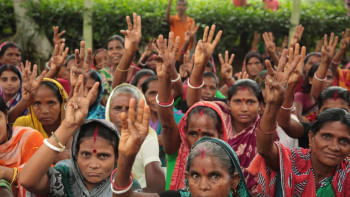


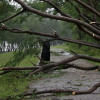
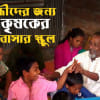

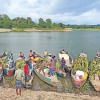


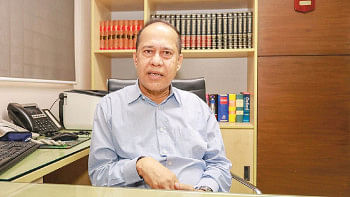
Comments